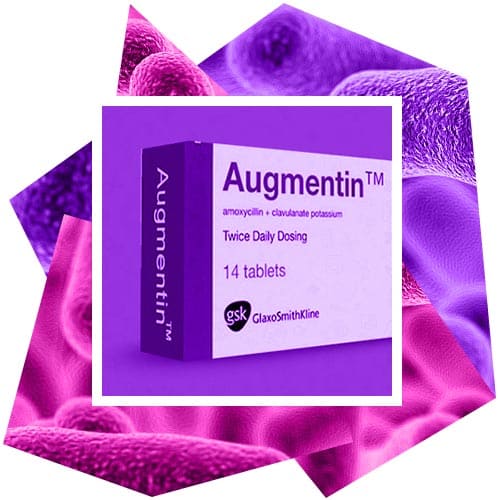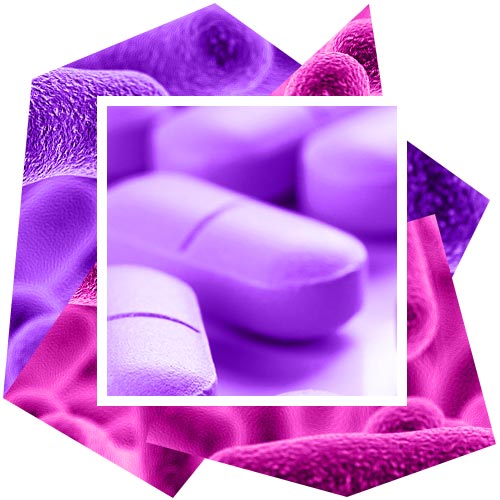General Overview:
Sinusitis or Sinus Infection is the inflammation or swelling of the tissues in the lining of sinuses. Sinuses are small hollow air spaces within the surroundings of the nose, and produce mucus & filled with air under normal and healthy circumstances. But when a blockage occurs inside the sinuses, the fluid gets filled in the hollow space which results in the growth of germs like bacteria or virus, causing a sinus infection.
Sinusitis can be a result of bacterial, viral infection or due to some causes such as a swollen nose can also be a potential reason for sinusitis because it also blocks the sinuses and results in pain.

Sinusitis and common cold or influenza are two different diseases and must not be confused. Common cold or flu is one of the symptoms of sinusitis.
Types of Sinusitis:
Sinusitis or sinus infection has been categorized into four different types based on its severity and duration of the infection.
- Acute Sinusitis: Acute sinusitis Starts suddenly and can last 2 to 4 weeks.
- Subacute Sinus Inflammation: The sinus infection can last up to 4 weeks and can be prolonged up to 12 weeks.
- Chronic Sinus Inflammation: In this situation, the sinus infection prolongs more than 12 weeks and in some cases, it can continue for months or even years.
- Recurrent Sinusitis: Sinus infection recurrs with several attacks within a year.
Acute Sinusitis and Chronic Sinus Infection/Sinusitis are the two major types of sinusitis infection.
Acute Sinusitis Infection: Acute Sinusitis also known as 'Acute Rhinosinusitis' is often associated with the common cold, and it results in the inflammation and swelling of the nasal passages and blocks the drainage of in nasal cavities. As a result, mucus starts to build/filled up in these cavities which promotes the growth of bacteria or other germs inside the sinuses.
Acute sinusitis is a temporary condition which is usually caused by the common cold and it can be cured within a week or 10 days.
Chronic Sinus Infection: Chronic Sinusitis is also known as the 'Chronic Rhinosinusitis' is a condition similar to acute sinusitis, which prolongs 12 weeks or more causing difficulty in breathing. Chronic sinusitis is most common in young and middle-aged adults but it may also affect the children.
Signs and Symptoms of Sinusitis Infection:
The signs and symptoms of all the four types of sinusitis infection are similar, but acute sinusitis is a temporary condition that can last up to 4 weeks, other types of sinus infection such chronic or sub-acute sinusitis can last longer i-e up to 12 weeks or more.
Symptoms of Acute Sinus Infection:
The acute sinus infection usually begins with the symptoms similar to common cold or flu. Its symptoms include:
- Runny nose
- Stuffed-up nose.
- Throbbing facial pain.
- Facial pressure.
- Swelling around the eye or face.
- Loss of smell.
- Cough or congestion.
- Thick green or yellow nasal discharge.
These symptoms are usually followed by:
- Fever.
- Bad breath.
- Fatigue.
- Dental pain.
- Nausea.
- Headache.
Symptoms of Chronic Sinus Infection:
If the symptoms of acute sinus infection prolong more than 12 weeks it's an indication that you might be suffering from a chronic sinus infection. Mostly the symptoms of a chronic sinus infection include:
- Congestion.
- Feeling of fullness in the face.
- Nasal blockage or nasal obstruction.
- Pus in the nasal cavity.
- Fever.
- Runny nose.
- Discolored post-nasal discharge.
- Thick discharge from the nose.
- Headaches.
- Bad-breath.
- Dental pain.
- Feeling tired all the time.
- Loss of smell and taste.
- Ear pain.
- Fatigue & irritability.
- Sore throat.
The symptoms for sub-acute and recurring sinus infection are similar to the symptoms of acute and chronic sinusitis.
Causes and Risk Factors of Sinusitis Infection:
Sinusitis is a common nasal infection. Every once in a year around 35 billion Americans get infected with the sinusitis. The most common cause of sinusitis is a common cold usually followed by bacterial or viral growth. But some other causes and risk factors of sinusitis may include:
- Swelling inside the lining of the nasal cavity caused by common cold.
- Blocked or interrupted drainage ducts.
- Nasal polyps.
- Narrowed drainage ducts due to structural differences.
- Immune system deficiencies.
- Medications suppressing the immune system.
- Other infections.
- Smoking.
In children, the causes of the sinusitis may be different from the causes of infection in adults. In children, sinusitis may be caused by:
- Allergies.
- Illness/infection caught from other kids.
- Pacifiers.
- Smoke in the surrounding.
- Bottle drinking while laying on back.
Why should be Sinusitis Treated?
Sinusitis is often confused with the common cold and many people do not get proper treatment on time which may worsen the condition and can prolong the infection duration. As the sinus lining or wall is connected to surrounding tissues of the eyes, brain, blood vessels and nerves therefore, untreated sinusitis can lead to more severe health complications and problems. The complications which may be caused by untreated sinusitis may include:
- Eye Infection: The sinus infection can spread to the eyes socket through blood vessels and can cause increased swelling of the eye tissues. Children are more likely to get eye infections because their bones are still maturing. Eye swelling caused by spreading of sinusitis results in puffy eyes which are difficult to shut followed by severe eye pain and sometimes loss of vision.
- Brain Infection: Sinusitis can also spread to the brain tissues and cause serious complications such as seizures, brain damage, bacterial meningitis, brain abscess, hearing loss, stroke, or in worse cases even death.
- Bone Infection (Osteomyelitis): Recurrent acute or chronic sinusitis can spread the bacteria to the surrounding bones resulting in a bone infection. Bone infections are difficult to cure and can lead to more complicated medical conditions.
- Asthma: Sinusitis is caused by inflammation and swelling in the nasal tissues and hinders the breathing through nasal cavities. Therefore it can not only aggravate asthma but can also worsen the condition.
- Mucoceles: Mucoceles is a medical condition which results in the accumulation of mucus in the sinus and this collection of mucus expands over time. The mucus exerts pressure and results in either the erosion or remodeling of the nose bone or structure, causing the narrowing of nasal ducts. Mucoceles can be treated only with surgery.
Treatment for Sinusitis:
If you notice or experience any of the two or more symptoms such as thick, discolored or greenish/yellowish nasal discharge, headache, fever, or stuffed nose or facial pain/pressure, you should immediately see your doctor for a checkup, because these indicators might be the sign of acute or chronic sinusitis.

There are several treatment methods for treating the sinus infection, which is based upon the severity of your condition. For instance, if you are suffering from a simple or mild sinus infection, your doctor will recommend you to use a decongestant and a saline nasal washes. But in some cases, the doctors may also prescribe some antibiotics, which you must take for 10 to 14 days without skipping the dosage.
In case, you are suffering from chronic sinusitis infection, your doctor may suggest you multiple treatments which may include:
- Warm, moist air compresses - To relieve the nasal pain and blockage. This can be done either by using a vaporizer or inhaling steam from the hot/warm water in the pan.
- Saline nasal drops.
- Use of decongestant sprays over the counter.
- Prescription of steroids along with antibiotics.
In some cases, where the person has other medical complications such as allergies, immune system deficiencies or fungal infections, the doctor may also prescribe medications for those problems too. Because it is possible that those infections or health problems are causing the sinusitis infection or nasal inflammation.
For allergies, your doctor might recommend you take an antihistamine, antifungal medications for fungal infections/growth and immunoglobins for immune system deficiencies.
In the context of Sinusitis, it is also important to make know that which are the most effective OTC Nasal Sprays and Oral decongestants reduces sinus inflammation.
In the sinuses the blood cells and the lining cells of the mucosa are able to fight off all the foreign invaders but if there is a huge number of viruses or bacteria, it gets a bit tough for the blood cells to fight and sinus inflammation may occur. However, in order to get rid of this short-lived infection a number of treatments are available which are able to treat inflammation symptoms. There are a number of decongestants which help in reducing airway obstruction, these are very important in initial treatment to alleviate symptoms of sinus infections.
- OTC Nasal spray is the most effective of them all and it works at a very rapid pace. It is recommended not to use these drugs for more than three days as they become less effective with every use and it becomes necessary to get more frequent applications in order to achieve same results. This use of spray can be decreased with the help of alternating between the nostrils and using the medicine less frequently. It has been observed that some people treat their nasal congestion in such a way that it gets very difficult for them to get rid of these sprays, they get dependent on them which in turn converts in to a disorder known as the rhinitis medicamentosum. Overcoming these dependencies requires one to go through a difficult withdrawal program which involves oral decongestants, saline, steroid nasal sprays and systematic steroids.
- OTC steroid nasal sprays also help in reducing inflammation of the nasal passage. However, these sprays may take a number of doses before showing signs of recovery. There are some side effects of these OTC steroid nasal sprays such as nose bleeding or sore throat.
- OTC oral decongestants are present in both tablet and liquid form. They are much slower as compared to nasal sprays, it usually take them 30-60 minutes before starting to effect the body. Like other nasal sprays, these decongestants also lose their effect if they are used for too long, hence, it is important to use them in a timely manner which is not very frequent. It is recommended that you should not take these without proper prescription or recommendation from your doctor.
Precautions and Preventions for Sinusitis:
Although, there is no sure way to prevent the sinus infections some precautions can still help you to reduce the risk of the infection. In order to avoid the sinus infection, you should:
- Avoid smoking and avoid inhaling the smoke from other people's smoke.
- Wash your hands often.
- Keep your nose/nasal cavities clean especially during common cold or flu season.
- Avoid touching your face when suffering from cold or flu.
- Avoid the things which you are allergic to.
Home Remedies for Treating Sinusitis:
You can also use some home remedies to prevent the spread of sinus infection, but there is no evidence that these home remedies are 100% effective. Even if you are using home remedies for treating sinusitis you must not discontinue or ignore the proper medical treatment.
- Oil of Oregano: Oregano is believed to have antibacterial and anti-fungal properties. Therefore it is plausible that use of its oil can help to prevent the risk of a sinus infection and some people even believe that it is effective in treating the infection.
- Neti Pots: It is a device with a small pot along with a sprout. It is used to rinse out the nose and keeps the nasal cavities moist.
- Steam Inhalation.
- Acupressure.
- Hydration.
- Warm washcloth compression.
- Use of essential oils.
There is no evidence that these remedies are the sure ways to treat the sinus infection but it is believed that if these remedies are taken along with the medication & treatment for sinus, these can speed up the recovery process. moreover, use of these remedies will relieve the discomfort caused by the sinus infection.
 AU
AU UK
UK CA
CA DE
DE FR
FR IT
IT ES
ES






